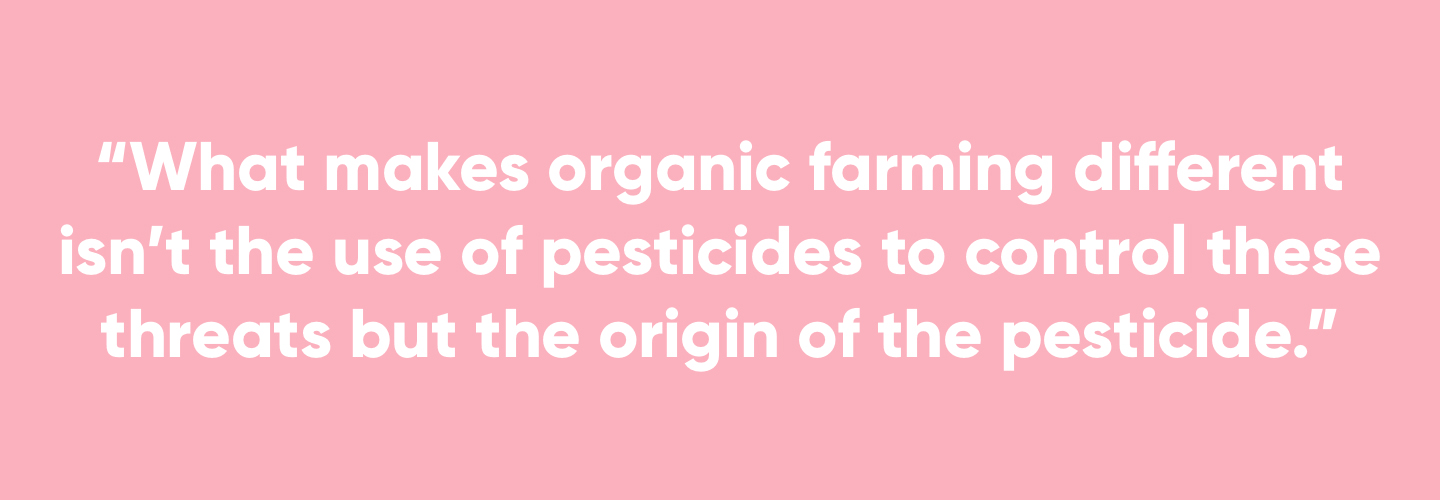Defining conventional and organic food

Organic and conventional food actually go through the same processing to get from field to plate, and organic and conventional farms both grow plants affected by critters and diseases. What makes organic farming different isn’t the use of pesticides to control these threats but the origin of the pesticide.1 There are approximately 20 chemicals approved for use in organic farming.2 These pesticides must be derived from natural sources and can only be processed lightly. In conventional farming, most of the pesticides are synthetic. And in many cases, synthetic pesticides have helped free produce from pests and bacteria.
Keeping pests off your food
There is a study in which researchers looked at organic insecticides versus synthetic insecticides to control soybean aphids — a plant-killing bug — and found that synthetic insecticide was more effective at controlling the aphids.1 They also found that organic insecticides harmed nontarget insects, including natural aphid predators such as lady bugs and beetles.3 To be fair, there are some organic pesticides that are more effective than synthetic pesticides. However, with fewer limitations, conventional farmers have more options for controlling pests. This means they have access to the best solution to many potential threats.
Ensuring bacteria-free food
Organic food has been shown to have a higher germ count, such as fecal contaminants, which is likely due to the use of manure instead of artificial fertilizer.4 Don’t get me wrong, manure is an excellent source of nutrients, and organic matter is great for soil health. However, conventional farms are able to use nonorganic antimicrobial agents to kill unwanted germs.
In a perfect world, we would use the best of both farming methods to create a more sustainable agricultural system that can feed the global population and simultaneously protect our environment. And as agriculture technology and capabilities grow, farmers are doing everything they can to keep produce clean. No matter if a farm uses synthetic or natural pesticide, your food is more than likely clean (but don’t forget to rinse!).
1McEvoy, Miles. Organic 101: What The USDA Organic Label Means. USDA. March 22, 2012. https://www.usda.gov/media/blog/2012/03/22/organic-101-what-usda-organic-label-means. Accessed August 13, 2019.
2The List of Organic Pesticides Approved by the USDA. AgDaily. April 24, 2018. https://www.agdaily.com/technology/the-list-of-pesticides-approved-for-organic-production/. Accessed August 13, 2019.
3Bahlai, C., Xue, Y., McCreary, C., Schaafsma, A., and Hallett, R. 2010. Choosing Organic Pesticides over Synthetic Pesticides May Not Effectively Mitigate Environmental Risk in Soybeans. https://doi.org/10.1371/journal.pone.0011250
4Organic Food: Food for Thought? American Council on Science and Healthy. February 17, 2000. https://www.acsh.org/news/2000/02/17/organic-food-food-thought. Accessed August 13, 2019.

